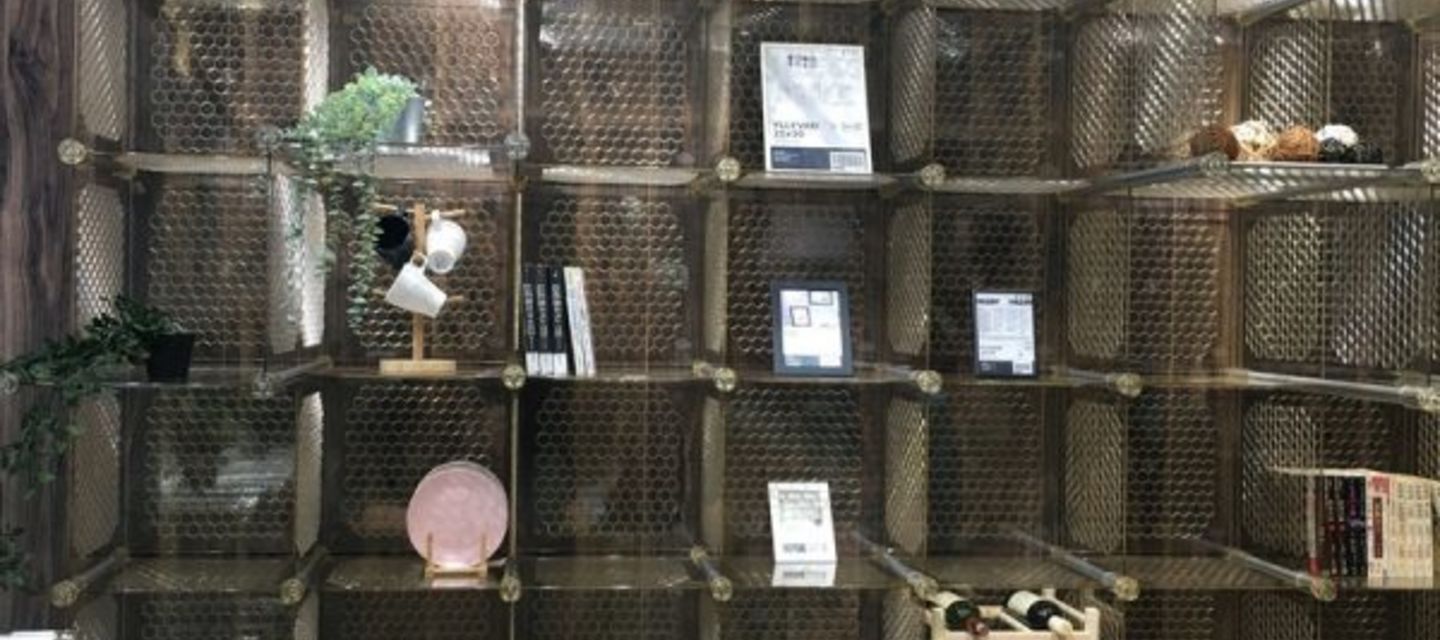What is it?
Mangodan, which means “avoid waste” in Taiwanese, is a furniture rental company based in Taiwan. Currently, it offers customisation shelving units made of recycled polyamide plastic for commercial and private use (Mangodan, 2024a). Mangodan offers incentives for prolonged usage by offering support services and reducing rental fees for more long-term rentals (Mangodan, 2024a). Mangodan has established its own fleet to support reverse logistics. Furthermore, it is also spearheading the circular economy movement by creating the Active Recycling Alliance with other industry partners and proposing the “better not throw away” zero-waste plan to the government (Mangodan, 2024a).
Why is this important?
Similar to the “fast fashion” trend, “fast furniture” is also becoming more prevalent. People replace furniture more frequently, significantly increasing bulky waste (i.e. furniture and large appliances). For example, Taiwan's bulky waste increased by more than 50% from 141,519 tonnes to 220,521 tonnes between 2017 and 2022 (Ministry of Environment, 2024). The rate of recycling and reuse has fallen from 54% to 37%, with the remainder going to landfills or incineration (Mangodan, 2024b). This trend is due to the recent changes in furniture production and consumption preferences. Manufacturers have focused more on mass production made with less durable materials such as plastic. Similarly, consumers choose furniture based on affordability and design rather than durability (National Geographic, 2020).
Main resource strategy: Slowing the loop by extending the lifetime of products through rental and designing with durability, reusability and modularity
Other resource strategies: Narrowing the loop through the use of recycled materials; Closing the loop with services that support recycling and reuse
Business model aspects:
- Value Proposition: Mangodan offers sustainable shelf rental for both commercial and private uses. Currently, it only operates in Taiwan. Customers can rent shelves that are customised to the layout of their space and tailored to their specific needs. In addition, Mangodan provides installation and end-of-life recycling services (Mangodan, 2024b).
- Value Creation & Delivery: Mangodan shelves are made of recycled polyamide from waste packaging material used during semiconductor manufacturing and recycled aluminium cans. The base unit of each shelf is an open-face box of 40cm by 40cm. This allows for modularity and flexibility in design as these boxes can be configured in various ways. Magodan has nine different configuration suggestions for commercial usage and 25 designs for private usage.
- Value Capture: The rental fee becomes cheaper the longer the rental period (Mandgodan, 2024b). For example, if the monthly rental is TWD 60 (about EUR 1,73) for the first 6 months, it drops to TWD 30 (EUR 0.86) for the subsequent 6 months. After 6 years, the monthly rental fee drops to TWD 6 (EUR 0.17) (Mandgodan, 2024b).
Strategies for degrowth/ sufficiency (based on sufficiency strategies from Niessen & Bocken, 2021):
- No ownership + Price incentive: Private and business customers can rent durable and recyclable shelving systems through the rental service. Additionally, there is a price incentive with prolonged usage; the longer the rental period, the less costly the rent fee (Mangodan, 2024b).
- Personalised production: The shelving system's modular design allows full customisation. Magodan offers nine different configuration suggestions for commercial use and 25 designs for private use.
Business model experimentation practices:
Founder Zelan Lin first started Mausu, a metal and plastics recycling business. Mangodan was created in 2019 under the Mausu umbrella. The first display shelf prototype was launched in the same year. It was made with wafer cassettes used to transport and store wafers during semiconductor manufacturing operations (Go Greener Today, 2024).
Sustainability outcomes:
From 2020, Mangodan has a cumulative carbon emission reduction of 23814.kg CO2, and 11415.6 kg avoided waste to landfill (Mangodan, 2024a).
Sources:
Ministry of Environment. (2024). National general waste generation. Ministry of Environment Environmental Information Open Platform. Accessed 10 June 2024 at: https://data.moenv.gov.tw/en [Translated]
Go Greener Today. (2024) Accessed 13 March 2024 at: https://gogreener.today/lifestyle/mangodan/ [Translated]
Mangodan. (2024a). About. Accessed 10 June 2024 at: https://www.mangodan.com.tw/about [Translated]
Mangodan (2024b). Products. Accessed 10 June 2024 at: https://www.mangodan.com.tw/products/4 [Translated]
National Geographic (2020). 年前換家具先看這篇:以租代買、不離不棄的家具循環路. Accessed 07 June 2024 at: https://www.natgeomedia.com/environment/article/content-10439.html [Translated]
Niessen, L., & Bocken, N. M. (2021). How can businesses drive sufficiency? The business for sufficiency framework. Sustainable Production and Consumption, 28, 1090-1103. https://doi.org/10.1016/j.spc.2021.07.030
***
About project Circular X
Project Circular X is about ‘Experimentation with Circular Service Business Models’. It is an ambitious research project funded by the European Research Council (ERC) which supports top researchers from anywhere in the world. Project CIRCULAR X runs from 2020-2026. The project is led by Principal Investigator (PI) Prof Dr Nancy Bocken, who is joined by a multidisciplinary team of researchers at Maastricht Sustainability Institute (MSI), Maastricht School of Business and Economics, Maastricht University. The project cooperates with businesses who want to innovate towards the circular economy.
Project Circular X addresses a new and urgent issue: experimentation with circular service business models (CSBMs). Examples of such new business models include companies shifting from selling products to selling services and introducing lifelong warrantees to extend product lifetimes. However, CSBMs are far from mainstream and research focused on experimentation is little understood. The research aims to conduct interdisciplinary research with 4 objectives:
- Advancing understanding of CSBMs; their emergence and impacts
- Advancing knowledge on CSBM experimentation
- Developing CSBM experimentation tools
- Designing and deploying CSBM experimentation labs
Funding source
This project has received funding from the European Research Council (ERC) under the European Union’s Horizon 2020 research and innovation programme, grant agreement No. 850159.
Using of this information
When you refer to this case, please use the following source:
Circular X. (2024) Case study: Mangodan - 100% recyclable rental shelf. Accessed from www.circularx.eu



